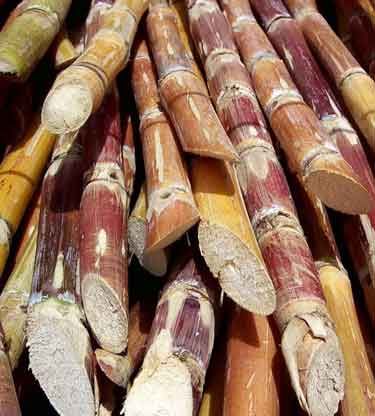That was one of the questions from a talk I gave the other night. A young woman had heard that peas and carrots should be avoided because of their high sugar content.
Do I try to answer her question from a scientific, technical standpoint: Put peas and carrots in the witness stand and cross examine them? Or do I step back and ask, “Where did that question even come from?”
On average, we consume 142 POUNDS of sugar each year (that’s as of 2003, up 19% from the 119 pounds we consumed in 1970.)* Every day, on average, we consume 13.5 teaspoons of sugar, just in the sodas we drink. A quick perusal of Starbucks’ nutritional information shows that we get another eight to 15 teaspoons in our morning coffee drinks. The morning muffin we wolf down–even a “healthy” Whole Wheat Honey Bran one–has another 6 or more teaspoons of sugar. That’s a total of 27.5 to 34.5 teaspoons of sugar–and we haven’t even gotten to lunch yet.

Given these facts, does it not seem just a little preposterous, a little audacious, to criticize peas for having 1 tsp. of “sugar” per 1/2 cup? What’s more, peas’ “sugar” is a far cry from the white stuff we spoon into our coffee, or the high fructose corn syrup we gulp down in our sodas. It requires none of the test tube processing required to mutate a stalk of sugar cane into crystals of white sugar or an ear of corn into a sweet syrup. And unlike those sweet mutations, the “sugar” in peas isn’t void of nutrients but comes bundled with an amazing assortment of valuable vitamins and minerals (**see below for details.)
A Goggle search pulled up an article that might be prompting these kinds of questions. That article pronounced peas “high” in sugar based on comparisons to spinach and broccoli (having 8.2 grams, 0.13 grams and 1.5 grams per cup, respectively, but with no mention made that a cup of spinach is one sixth the weight of a cup of peas.) The article warned that consuming foods high in sugar, even from fruits and vegetables, is likely to cause weight gain and an increased chance of developing diabetes. It cautioned against eating peas “unless you really enjoy them.”
All I can think is that we should be so lucky if people would eat peas! In a nation where only one person in ten eats the recommended number of fruits and vegetables and where we consume toxic amounts of processed, refined foods in oversized portions, it would be tremendous if we would eat whole, natural vitamin-and-mineral packed food like peas–and carrots, too.
Maybe, instead of dissecting and worrying about the sugar and calories in peas and carrots, we should be looking at their sweetness as a little gift from nature–so we aren’t stuck eating bitter dandelion greens and bland spinach all the time. Maybe we should say “thank you,” instead of being horrified–and then sneaking in the freezer for a dip of Chunky Monkey (7 teaspoons of sugar in a 1/2 cup serving).
The bottom line: Eat your peas and carrots, just like your mother said!
* From GOOD, October 8, 2007, drawing on statistics from Center for Science in the Public Interest. By the way, 142 POUNDS of sugar is the equivalent of 13,995 teaspoons of the stuff–another reason to wonder why we would worry about the 1 teaspoon of sugar in a serving a peas that would amount to only 365 teaspoons annually if we only would eat a serving a day.
**From WHFoods.com: Green peas are a very good source of vitamin C, vitamin K, manganese, dietary fiber, folate and thiamin (vitamin B1). They are also a good source of vitamin A, phosphorus, vitamin B6, protein, niacin, magnesium, riboflavin (vitamin B2), copper, iron, zinc and potassium.
***Transforming sugar cane into sugar also has serious environmental and social justice implications according to an article in Seedling, July 2007
Thank you for a new good information. Where else could anybody get this kind of article in such a perfect way. I truly enjoyed reading it.